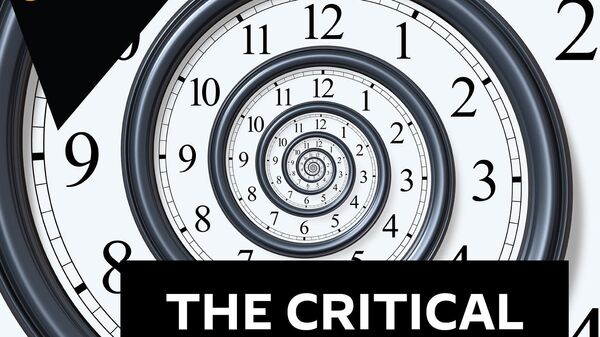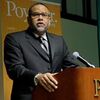US President Donald Trump and North Korean Chairman Kim Jong-un, have completed their second denuclearization summit. At a news conference immediately following that first summit, Trump told reporters that denuclearization "will go pretty quickly." His National Security Advisor John Bolton said on July 1 last year that the North could dismantle its weapons of mass destruction and ballistic-missile programs "in a year." The headline in today's Washington Post is: "Trump and Kim Abruptly Cut Short Summit After Failing to Reach Nuclear Deal." The headline in the Asia Times is: "North Korea-US Summit Collapses Without Agreement." Despite good vibes between Kim and Trump, the two sides may have attempted to do too much. Was it a collapse, as described in the AT, or more of a natural end without the anticipated signing? Did they try to do too much?
Israeli Attorney-General Avichai Mandelblit announced today his intent to indict Prime Minister Benjamin Netanyahu for bribery in a blockbuster decision that could decisively impact the April 9 election. Mandelblit said that Netanyahu will be indicted for bribery, fraud and breach of trust in three cases. In Case 4,000, Netanyahu is alleged to have fired a Communications Ministry director-general and hired his loyalist and ex-campaign manager to ensure a government policy that improperly favored one of Netanyahu's friends. In Case 1,000, Netanyahu is accused of, and admits to, receiving a range of expensive cigars, champagne and other items. In Case 2,000, Netanyahu is accused of trying to make a deal with the publisher of Yedioth Ahronoth — a national daily newspaper in Tel Aviv — which would see the paper offer him favorable coverage in exchange for the prime minister using his influence to damage Israel Hayom, an Israeli national Hebrew-language free daily newspaper and competitor of Yedioth Ahronoth. Netanyahu's Likud party claims that this is a "witch hunt." What does this mean for the upcoming elections in Israel and the politics of the region going forward?
Journalist Jon Jeter's recent Truthout piece, "Flat Broke, Black Voters Want More Than Just Another Black President," he writes, "Cory Booker's announcement on February 1 that he is entering the 2020 presidential race brings the number of African-American Democrats seeking their party's nomination to two, making the crowded primary field the 'most diverse in history,' according to The New York Times. But while The New York Times, cable news and other liberal pundits exult in the White House bids of Booker and California's junior US Sen. Kamala Harris, African Americans, ironically enough, have not uniformly mustered nearly as much enthusiasm for either candidate." He adds, "Not since a severe financial downturn shuttered the Freedman's Bank in 1874 have African Americans lost as much of our wealth as we did during Barack Obama's eight years in office… As African Americans reflect on their losses over the last decade, many have begun to question the loyalty of a Black political leadership that is increasingly seen as complicit in covering up the crime of the century. Booker has been criticized as being a champion of charter schools, a foe of lowering prescription drug prices and a sock puppet for the same moneyed interests responsible for the subprime debacle." What's really at stake in the 2020 election, and who will and won't be the best candidate for African-Americans?
GUESTS:
Brian Becker — Co-host of Loud & Clear on Sputnik News.
Phyllis Bennis — Fellow at the Transnational Institute in Amsterdam
Jon Jeter — Author and two-time Pulitzer Prize finalist with more than 20 years of journalistic experience. He is a former Washington Post bureau chief and award-winning foreign correspondent.
We'd love to get your feedback at radio@sputniknews.com


